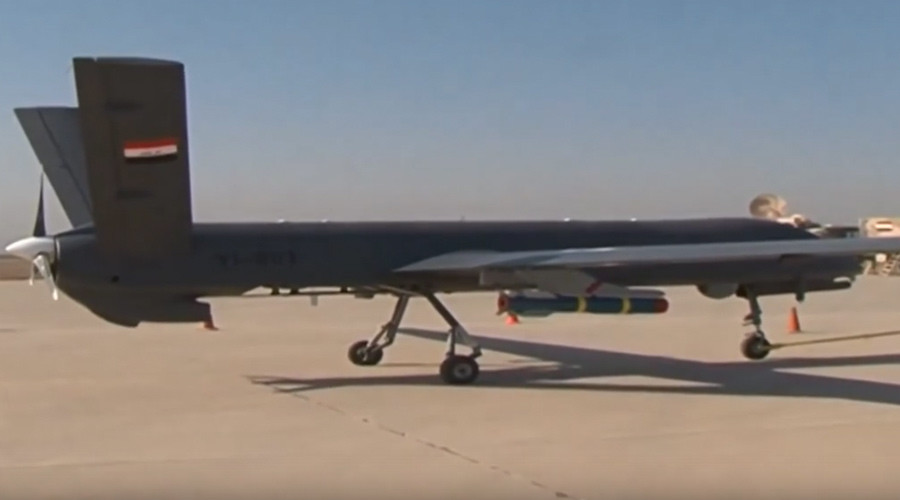
The Iraqi military has released a video displaying the combat deployment of a CH-4B drone which the country recently bought from China. Baghdad has been diversifying its arms supply to decrease its reliance on American producers.
The Caihong (Rainbow) 4B drone flew from the al-Kut Air Base southeast of Baghdad and shot an AR-1 laser-guided anti-tank missile at an Islamic State target, according to the Iraqi Defense Ministry. The first-ever Iraqi combat drone mission was supervised by Defense Minister Khaled-al-Obeidi.
Iraq purchased a number of Chinese combat drones in early 2015, with photos of the robotic aircraft already in Iraq surfacing since at least March. The CH-4B is a dual reconnaissance/combat UAV with a range of 5,000 km, according to producer, China Aerospace Science and Technology Corporation (CASC).
The drone is similar to the US-made MQ-9 Reaper can carry a payload of up to 350kg carried on six pads. Its designated weapons include Lan Jian 7 (Blue Arrow 7) laser-guided air-to-surface missiles, TG100 bombs and the AR-1 missiles, the latter being an equivalent of American-made Hellfire missiles.
China is already world's largest producer of UAVs and is working on taking on a greater share in the military drone segment of the global market, competing against traditional leaders like the US and Israel. In September it revealed its heaviest combat drone to date, the Caihong 5.
Earlier this year Nigeria received a number of armed Caihong-3 drones from Beijing, which it appears to have been using in its campaign against Boko Haram militants. China may also have shared drone technology with Pakistan, as its Burraq drone unveiled in November 2013 bears a strong resemblance to the same Chinese model, according to defense experts.
Iraq, which for years had the US as its primary arms supplier, is currently broadening its defense contracts geographically. In addition to China it signed big arms deals with Russia and Iran.
Comments
Post a Comment